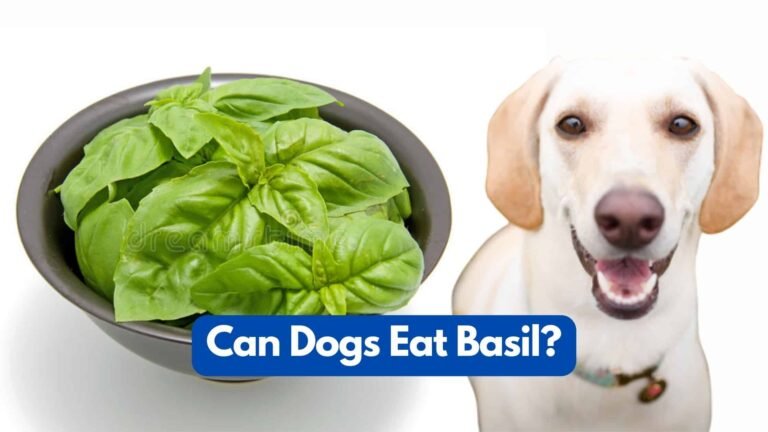Can Dogs Eat Salami? All You Need To Know

Salami, a popular cured meat, is a delicious treat enjoyed by many. As a dog owner, you may wonder, can dogs eat salami? Or Is it safe to share this tasty snack with your furry friend? In this blog post, we will explore whether dogs can eat salami and uncover the potential risks involved.
While salami may be tempting to share, it’s important to consider factors such as the high-fat content, seasonings, and additives that can be harmful to dogs. By understanding the impact salami can have on your dog’s health, you can make informed decisions about their diet and ensure their well-being.
So, please grab a cup of coffee let’s get started.
Can Dogs Eat Salami?
No, dogs should not eat salami. Salami is high in fat and often contains spices like garlic and onion, which can be toxic to dogs. The high-fat content can lead to weight gain, pancreatitis, and other health issues.
Additionally, the seasonings and additives in salami can cause gastrointestinal distress. It’s best to avoid feeding salami to your dog and opt for healthier, dog-friendly treats instead.

Is Salami Bad for Dogs?
Salami is generally not recommended for dogs due to several reasons. One primary concern is its high-fat content. Salami is typically made from fatty cuts of meat, which can lead to weight gain and obesity in dogs. In addition, the high-fat content can put a strain on a dog’s pancreas and potentially lead to pancreatitis, a painful and serious condition.
Furthermore, salami often contains spices, seasonings, and additives that may not be suitable for dogs. Ingredients like garlic and onion powder, commonly found in salami, can be toxic to dogs and cause gastrointestinal distress or damage to their red blood cells.
Dogs and Salami: A Closer Look
Different types of salami have varying ingredients and preparation methods. Let’s examine specific types of salami and their potential effects on dogs:
1. Cotto Salami:
Cotto salami is a cooked variety that may contain lower levels of harmful bacteria than raw or dry salami. However, it still poses the same concerns regarding high-fat content and seasoning additives.
2. Dry Salami:
Dry salami is a type of cured sausage that is air-dried and fermented. It tends to have higher fat content and can be more challenging for dogs to digest. Additionally, the seasonings and spices used in dry salami can be problematic for canine consumption.
3. Genoa Salami:
Genoa salami is a popular Italian salami known for its distinct flavor. Similar to other types of salami, it typically contains high fat and seasonings that may not be suitable for dogs.
4. Hard Salami:
Hard salami is another cured and fermented variety. It is dense and has a firmer texture than other salami types. While it may seem tempting to share a slice with your dog, the high-fat content and seasonings should be taken into consideration.
5. Salami Slices:
Salami slices are often used as a sandwich or pizza topping. These slices usually contain the same ingredients and seasonings found in other salami types, potentially harming dogs.
6. Salami Sticks:
Salami sticks are a popular on-the-go snack. However, they often have a higher fat and sodium content, which can be detrimental to a dog’s health.
7. Spicy Salami:
Spicy salami varieties are infused with hot peppers or spices, making them unsuitable for dogs. The spices can cause gastrointestinal discomfort and may irritate a dog’s digestive system.
8. Uncured Salami:
Uncured salami is not typically recommended for dogs either, as it may still contain seasonings or additives that can be harmful to their health.
9. Turkey Salami:
Turkey salami is a leaner alternative to traditional pork or beef salami. While it may have a lower fat content, it can still contain seasonings and spices that may be problematic for dogs.
How Much Salami Can a Dog Eat?
If you decide to give your dog a small amount of salami as an occasional treat, it’s crucial to consider portion sizes. Salami should never replace a balanced diet for your dog.
As a general guideline, limit the amount to a small slice or less, and ensure it doesn’t exceed 10% of your dog’s total daily calorie intake. It’s crucial to balance the salami treat with healthy and nutritious dog food to maintain your dog’s overall well-being.

Why Is Salami Bad for Dogs (and Maybe You Too)?
Salami’s high-fat content can be detrimental to dogs, and it’s not the healthiest choice for humans either. Excessive consumption of salami can lead to weight gain, cardiovascular issues, and other health problems.
The processed nature of salami also means it may contain preservatives, nitrates, and other additives that can have negative effects on both dogs and humans. While an occasional indulgence may not cause significant harm, it’s important to be mindful of the potential risks associated with regular consumption.
What About the High-Fat Content of Salami?
The high-fat content in salami is a major concern for dogs. Dogs are prone to weight gain and obesity, which can lead to a range of health issues such as joint problems, diabetes, and heart disease.
Additionally, a high-fat diet can strain a dog’s pancreas, potentially leading to pancreatitis, a condition characterized by inflammation of the pancreas. Pancreatitis causes severe abdominal pain, vomiting, and lethargy in dogs and requires immediate veterinary attention. To maintain your dog’s health, it’s best to avoid or limit their consumption of high-fat foods like salami.
Can Dogs Eat Pepperoni?
Pepperoni is a type of salami that is often used as a pizza topping or snack. Like other salami varieties, pepperoni is high in fat and sodium, making it unsuitable for regular canine consumption.
The spices and seasonings used in pepperoni, including garlic and onion, can also be harmful to dogs. It’s best to keep pepperoni and other salami products away from your furry friend to ensure their well-being.
Which Human Foods Are Healthy for Dogs?
While salami may not be a suitable treat for dogs, several human foods can provide health benefits when included in moderation. Some examples include:
- Lean meats: Skinless, boneless chicken or turkey can be a great source of protein for dogs when cooked thoroughly and without seasonings.
- Fruits and vegetables: Many fruits and vegetables are safe and nutritious for dogs. Examples include apples, blueberries, carrots, and green beans.
- Cooked eggs: Eggs can provide a protein boost for dogs. Ensure they are cooked thoroughly to avoid any risk of salmonella.
- Plain rice or pasta: These plain carbohydrates can be included in a dog’s diet in small quantities for added variety.
Remember, it’s important to introduce new foods gradually and in moderation to avoid digestive upset or allergies. Always consult your veterinarian before making any significant changes to your dog’s diet.
Human Foods Dogs Should Never Eat
While it’s tempting to share our favorite foods with our furry companions, some human foods are harmful or toxic to dogs. It’s crucial to be aware of these foods to protect our dogs from potential health risks. The following are examples of human foods that dogs should never consume:
- Chocolate: Chocolate contains theobromine, which can be toxic to dogs and affect their heart and nervous system.
- Grapes and raisins: These fruits can cause kidney failure in dogs and should be avoided.
- Onions and garlic: These ingredients, commonly found in many dishes, contain compounds that can damage a dog’s red blood cells and lead to anemia.
- Alcohol: Alcohol consumption can have severe effects on dogs, including intoxication, liver damage, and even death.
- Xylitol: This artificial sweetener is often found in sugar-free products like gum, candy, and baked goods. Xylitol can cause a rapid and dangerous drop in a dog’s blood sugar levels.
- Avocado: Avocados contain persin, a compound that can be toxic to dogs and cause vomiting and diarrhea.
- Macadamia nuts: Macadamia nuts can cause weakness, tremors, and hyperthermia in dogs.
This list is not exhaustive, so it’s important to research and consult your veterinarian if you are unsure about the safety of a particular food.
When Is Salami Bad for Dogs?
Salami should be avoided in several circumstances to ensure your dog’s well-being. These include:
- Dogs with pancreatitis or a history of pancreatitis should never consume salami due to its high-fat content, which can trigger a flare-up.
- Dogs with food sensitivities or allergies may experience adverse reactions to the spices, seasonings, or preservatives present in salami.
- Puppies and senior dogs may have more sensitive digestive systems and should avoid foods like salami that can cause gastrointestinal distress.
- Dogs with underlying health conditions, such as liver or kidney disease, should have a restricted diet and should not be given salami without veterinary approval.
If you have any concerns about feeding salami to your dog, it’s best to consult with your veterinarian for personalized advice based on your dog’s specific needs.
What Do I Do If My Dog Ate Salami?
If you suspect that your dog has consumed salami or any other potentially harmful food, take the following steps:
- Assess the situation: Determine the quantity of salami consumed and any other potential factors, such as the presence of spices or seasonings.
- Monitor for symptoms: Keep an eye out for signs of gastrointestinal distress, such as vomiting, diarrhea, or loss of appetite. Also, observe any changes in behavior or energy levels.
- Contact your veterinarian: Reach out to your veterinarian for guidance. They may recommend monitoring your dog at home or bringing them in for an examination depending on the circumstances.
- Follow veterinary advice: Your veterinarian will provide instructions based on your dog’s individual situation. They may advise providing supportive care at home or bringing your dog in for further evaluation.
It’s important to act promptly if you suspect any potential issues related to your dog’s consumption of salami or other foods. Your veterinarian is the best resource to provide accurate guidance for your specific situation.
What Happens If a Dog Overeats Salami?
If a dog consumes an excessive amount of salami, it can lead to various health issues. Some potential consequences of overindulgence in salami include:
- Gastrointestinal upset: Salami’s high fat content can lead to digestive issues such as vomiting, diarrhea, and abdominal discomfort. These symptoms may be mild or severe depending on the amount consumed.
- Pancreatitis: The high fat content in salami can cause inflammation of the pancreas, leading to pancreatitis. This condition requires immediate veterinary attention and can be life-threatening if left untreated.
- Weight gain and obesity: Excessive consumption of high-fat foods like salami can contribute to weight gain and obesity in dogs, leading to a range of health problems.
If you notice any signs of digestive upset, lethargy, or changes in your dog’s behavior after consuming a significant amount of salami, it’s crucial to seek veterinary assistance promptly.
Is There Too Much Salt in Salami?
Salt, or sodium, content in salami can also pose health risks for dogs. Dogs have different sodium requirements than humans, and excessive salt intake can lead to dehydration, electrolyte imbalances, and increased blood pressure. These issues can strain a dog’s kidneys and potentially lead to kidney disease or other organ damage.
To maintain your dog’s health, it’s essential to provide a balanced diet with appropriate sodium levels. Commercially available dog food is formulated to meet the nutritional needs of dogs, including their sodium requirements. Therefore, it’s best to avoid feeding salty human foods like salami to your furry companion.
Alternatives to Salami for Dogs
When it comes to treating your dog, there are several alternatives to salami that are both safe and enjoyable for them. Here are some dog-friendly alternatives that you can offer as treats:
- Lean meats: Skinless, boneless chicken or turkey can be a healthy and protein-rich alternative to salami. Cook the meat thoroughly and remove any seasoning or added ingredients.
- Fresh fruits: Many fruits are safe for dogs and can be a delicious and nutritious treat. Some examples include sliced apples, blueberries, strawberries, watermelon (without seeds), and bananas (in moderation).
- Vegetables: Crunchy vegetables like baby carrots, cucumber slices, and green beans can serve as low-calorie and nutritious alternatives to salami. Ensure that the vegetables are cut into appropriate sizes to prevent choking hazards.
- Frozen treats: During warmer months, you can freeze plain yogurt or make fruit puree popsicles for your dog. These refreshing treats provide a cooling effect and are a healthier option compared to salami.
- Commercial dog treats: There are numerous commercially available dog treats specifically formulated to meet your dog’s nutritional needs. Look for treats that are low in fat, free from harmful additives, and designed for your dog’s size and breed.
Frequently Asked Questions Similar To “Can Dogs Eat Salami?”
Is it safe for dogs to eat salami?
No, it is not recommended for dogs to eat salami due to its high-fat content and potentially harmful ingredients like garlic and onion.
What are the risks of feeding salami to dogs?
Feeding salami to dogs can lead to weight gain, pancreatitis, gastrointestinal upset, and potential toxicity from ingredients like garlic and onion.
Can dogs have a small amount of salami as a treat?
While it’s best to avoid salami altogether, giving a small amount as an occasional treat can be considered. However, it should be limited and carefully monitored.
Are all types of salami equally harmful to dogs?
Different types of salami have varying ingredients and levels of fat, but they all pose similar risks to dogs due to their high-fat content and potential additives.
Can dogs eat cooked salami?
Cooked salami still retains its high-fat content and potentially harmful ingredients, so it is not recommended for dogs.
What about uncured or low-sodium salami?
Uncured or low-sodium salami may still contain seasonings or additives that can be harmful to dogs, so it’s best to avoid them.
Can dogs eat pepperoni if they can’t have salami?
Pepperoni is a type of salami and shares the same risks, including high fat content and potentially harmful ingredients, making it unsuitable for dogs.
Can small amounts of salami cause pancreatitis in dogs?
Yes, even small amounts of salami can potentially trigger pancreatitis in dogs due to its high-fat content.
What should I do if my dog accidentally eats salami?
If your dog accidentally consumes salami, monitor them for any signs of gastrointestinal distress or toxicity and consult your veterinarian for guidance.
Are there alternative treats I can give my dog instead of salami?
Yes, there are plenty of safe and healthy dog-friendly treats available that you can offer as alternatives to salami, such as lean meats, fruits, and vegetables specifically recommended for dogs.
Conclusion:
While salami may be a delicious treat for humans, it is not recommended for dogs. The high-fat content, seasonings, and potential additives make it unsuitable for regular canine consumption. As responsible dog owners, we must prioritize our dogs’ health and well-being by providing them with a balanced and nutritious diet.
Remember, if your dog happens to ingest salami or any other potentially harmful food, consult your veterinarian for personalized advice. By making informed choices and understanding the risks, we can ensure that our beloved furry friends lead happy and healthy lives.





